Estimated reading time: 5 minutes
We are living in unprecedented times as the coronavirus pandemic spreads throughout the globe. The United States has become the new epicenter for the virus, now with the highest number of cases in the world.
The virus is spread from one individual to the next via droplets of bodily fluids that can travel in the air after someone coughs or sneezes. These fluid droplets can easily land on surfaces where they can survive for several hours, if not several days.
Want to save this post for later? Click Here to Pin It On Pinterest!
If someone were to touch a contaminated surface, the chances of that person becoming infected goes up significantly.
The good news is that there are a handful of household products that can kill the coronavirus, including several products that you may have right now. By using these products to wipe down and decontaminate surfaces in your home, you can greatly reduce the odds of catching the virus, in addition to killing other kinds of pathogens.
While hand sanitizer is great, you still need to disinfect other surfaces that you regularly touch. Otherwise, your hands could pick up the virus again right after you disinfected them.
With that said, here are the top four products for killing viruses:
Bleach
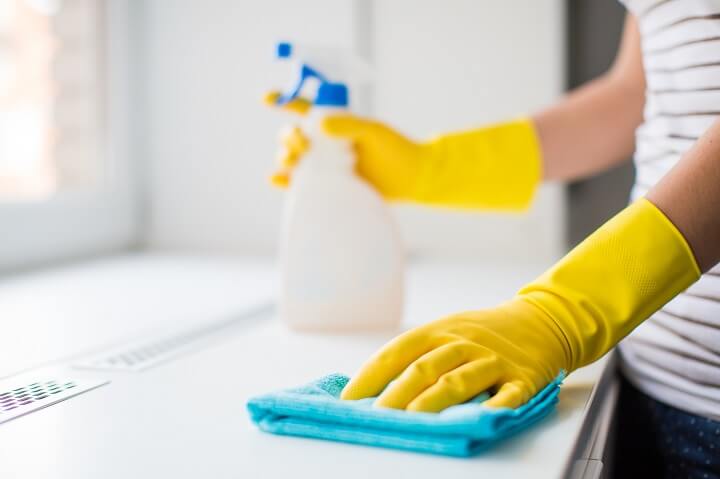
Do you currently have a bottle of bleach sitting in your laundry room? If so, go ahead and grab it right now. Bleach is an excellent defense against viruses, which is one of many reasons it has been a popular cleaning product in American homes for many years.
To make bleach spray, you want to mix a 1:32 bleach to water solution. Here's how:
Bleach Spray Instructions:
- Pour 16 ounces of water into a spray bottle.
- Add 1 1/2 teaspoons of bleach and stir.
You can use this solution to disinfect everything in your home, from the floors to the countertops to the physical products. There are a few things you should know:
- Discard any remaining bleach spray at the end of the day, as water causes it to rapidly degrade.
- Use enough solution so that the surface remains wet for 10 minutes. Otherwise, it won't completely disinfect the surface.
- Always wear gloves when working with bleach as it can irritate your skin.
WARNING: Do not mix bleach with any other household cleaners, especially anything with ammonia. Why? Because if you accidentally mix the wrong things together, you could create a deadly gas.
Think of it this way: When you are using bleach, you are not cleaning—you are disinfecting. So don't use bleach while cleaning. Wait a good ten minutes after you've cleaned and the surfaces are dry, then use bleach to disinfect them.
You could also use bleach on surfaces like light switches and doorknobs if someone who is potentially sick has touched them. And anything else that could harbor the virus, except fabrics as bleach will stain them.
You should also avoid bringing bleach into contact with metal as it can cause metal to corrode over time.
Isopropyl Alcohol
Any alcohol solution with an alcohol concentration of at least 70% should be effective against viruses on hard surfaces. Since isopropyl alcohol almost always contains 70% alcohol, it's a good choice.
Without diluting it, apply the alcohol solution directly to the surface you want to disinfect and allow it to sit for one minute. You can use isopropyl alcohol to disinfect any kind of surface, but reconsider using it for plastics because it could cause discoloration. It should be safe to use on other kinds of surfaces.
Hydrogen Peroxide
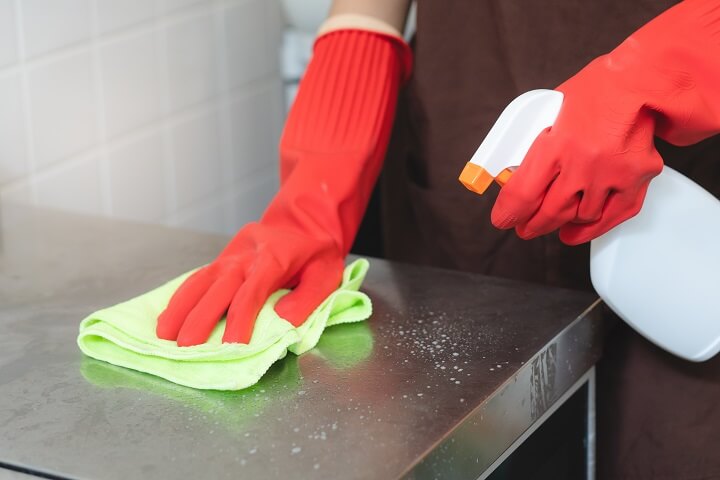
According to the CDC, hydrogen peroxide will kill the rhinovirus, which leads to the common cold. Since the rhinovirus is harder to kill than the coronavirus, it’s safe to say that the coronavirus wouldn’t stand a chance against hydrogen peroxide either.
Always use household 3% hydrogen peroxide. Pour it into a spray bottle, undiluted, and then spray the surface that you want to clean. Wait for one to two minutes, and then proceed to wipe it down with a clean rag.
You can also use hydrogen peroxide on metal surfaces because it is non-corrosive However, it can discolor fabrics, so think twice before using it on your clothes.
Good Ole Fashioned Soap
The classic cleaning method of soap and water remains one of the most effective methods for killing viruses.
Make it a habit to wash your hands thoroughly before cooking or preparing food, before eating, after using the restroom, after returning home, after touching anything that could be contaminated, and after being in close contact with other people.
Believe it or not, soap actually works more effectively than many other kinds of disinfectants. This is because it dissolves the fat membranes in bacteria, so the viruses become ineffective.
Remember: You have to wash your hands for at least 20 seconds to remove all pathogens. Or you could sing one of these songs.
Conclusion
As a final word, remember that surfaces play one of the biggest roles in transmitting the pathogens. To prevent yourself from becoming infected, you should regularly decontaminate any surfaces that could have been touched by a person or object with the virus.
Here's a list of common things to disinfect:
- Your phone
- Light switches
- Door handles
- Car door handles
- Refrigerator handles and doors
- Countertops
- Laptop screens and keyboards
- Phones
- Dishes
- Clothing
- Floors
- Anything that could be contaminated
Using the methods we've covered here won't guarantee that you never contract coronavirus, but it will greatly reduce the odds.
Hopefully, it never will happen. Just don’t get into the mindset that it never will happen to you. It can and will if you're not careful.
Like this post? Don't Forget to Pin It On Pinterest!



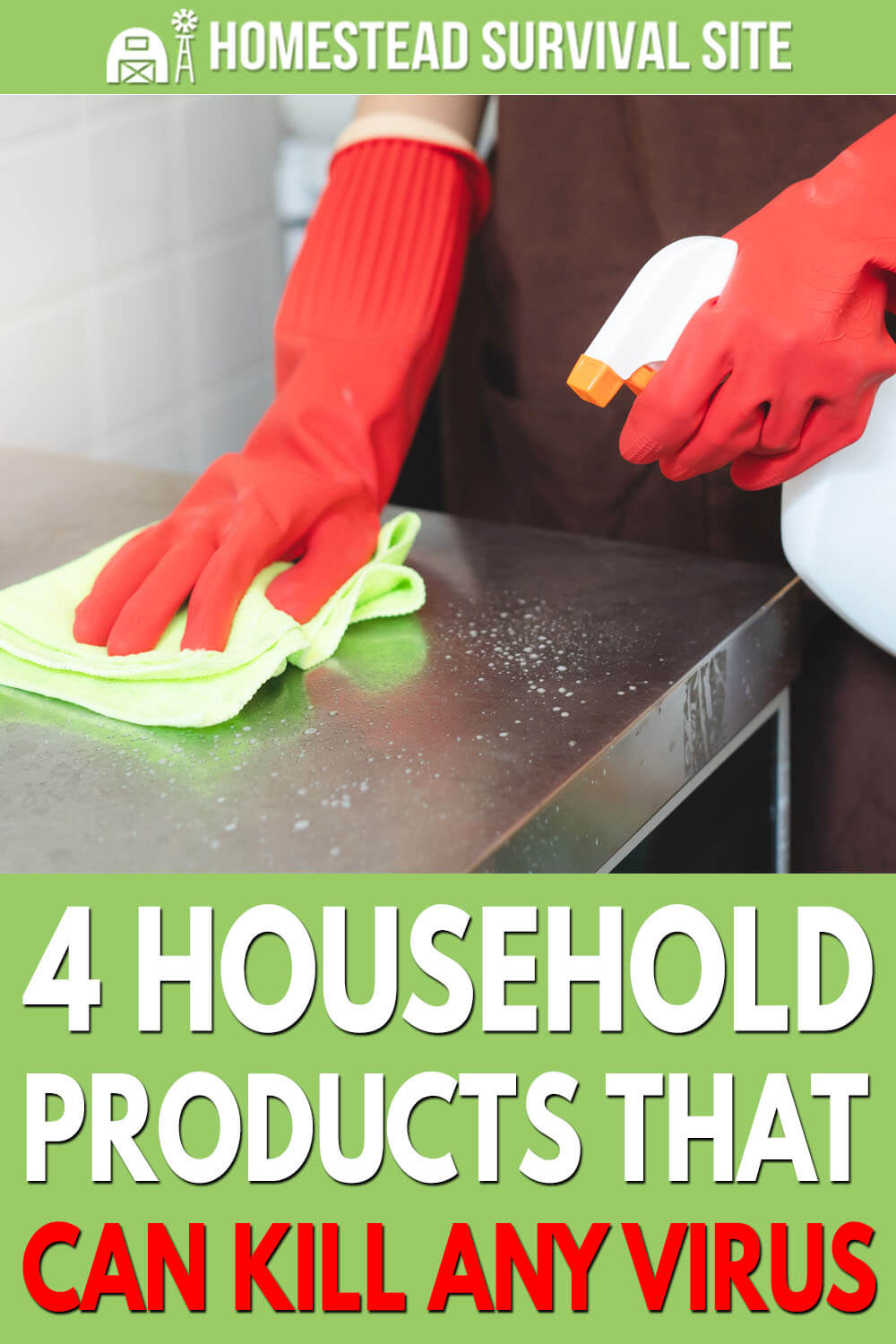

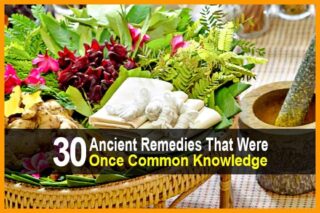


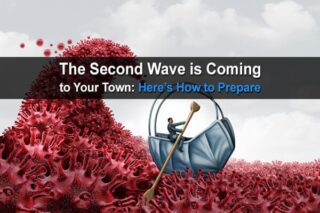
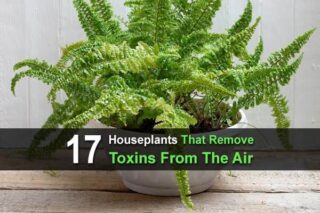



FYI: Bleach does lose it’s potency and effectiveness in less than one year.If you open an old jug there is very little odor.
Pool Shock mixes with water and you have fresh bleach.The Pool Shock is
good for ever.
Steramine Tablets are also a highly effective sanitizer on any surface.
The information you’re giving about the bleach solution is wrong. Bleach diluted with water will lose any disinfecting effect after 24 hours.
Thank you for this information and the opportunity to participate in The Lost Ways Community.
I appreciate you and your team. I too am getting as much information as I can to becoming completely self-sufficient.
I’m not terribly new to these ways because of spending summers with my Grandparents and Great Grandparents when I was young.
However, I am new to the updated emergencies and dangers to the rising risks from our society today. Therefore I have been collecting, researching, and applying any new information I can get from anywhere I can get it from so that my family, friends and neighbors can make informed decisions and choices to how to live their lives from now on.
So thank you, everything helps and will help to shape my little community into a thriving village.
Sincerely your new friend,
Sybilg
Hello from Great Britain,
Over here we have this antiseptic product called Dettol and its made from 4.8% Chloroxylenol the midwives use it and on the bottle it says For First Aid, medical and personal hygiene uses.
Ingredients: Isopropyl alcohol, Castor Oil, Pine oil, Soda solution, Water.
During the pest of the century this product was hard to find because it works well on surface plus, you can actually use it to bade! andfor desinfecting clothes whilst washing them.
great add on – yes my mom used it a lot in our house – loved the smell